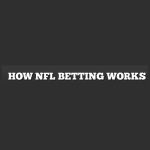Understanding Odds in Sports Betting
Odds in sports betting are numerical representations that indicate the likelihood of a specific outcome occurring in a particular sporting event. These odds can take various forms, such as fractional, decimal, or moneyline, depending on the region or the preferences of the bookmaker. Understanding how odds work is essential for bettors to make informed decisions when placing their wagers.
In general, odds can be interpreted as the ratio of the potential profit to the amount wagered. For instance, if the odds for a team winning a match are 2/1, this means that for every dollar bet, the potential profit would be two dollars. Conversely, odds of 1/2 would suggest that a bettor needs to wager two dollars to make a profit of one dollar if the outcome is successful. Being able to grasp the concept of odds plays a crucial role in not only calculating potential winnings but also in assessing the perceived probability of an outcome.
Different Types of Bets in Sports
In the world of sports betting, there are various types of bets that punters can place to add excitement to their viewing experience. One common type of bet is the moneyline bet, where you simply choose the team or individual you think will win the game. Moneyline bets are straightforward and easy to understand, making them popular among beginners in sports betting.
Another popular type of bet is the point spread bet, where the sportsbook assigns a point spread to each game to level the playing field between the favorite and the underdog. With the point spread bet, not only do you have to predict the winner of the game, but you also have to determine if the winning team will cover the spread. Point spread bets add a layer of complexity to sports betting, making them a favorite among seasoned bettors looking for a challenge.
Factors to Consider Before Placing a Bet
Before placing a bet, it is crucial to carefully analyze the performance of the teams or athletes involved in the upcoming event. Consider factors such as recent form, head-to-head matchups, injuries, and any other relevant statistics that may impact the outcome of the game. By conducting thorough research, you can make more informed decisions and increase your chances of placing a successful bet.
Another important factor to consider before placing a bet is the odds offered by the bookmakers. Understanding how odds work and being able to interpret them correctly is key to making profitable bets. Compare the odds offered by different bookmakers to ensure you are getting the best possible value for your wager. Additionally, consider the probability of the outcome you are betting on and assess whether the odds being offered accurately reflect this likelihood.
The Role of Bookmakers in Sports Betting
Bookmakers play a crucial role in the world of sports betting. They are the entities responsible for setting the odds on various sporting events, acting as the middlemen between bettors and the betting market. Bookmakers use their expertise to calculate the probabilities of different outcomes and adjust the odds accordingly to ensure a balanced book and secure a profit margin for themselves.
In addition to setting the odds, bookmakers also provide a platform for bettors to place their wagers. They offer a wide range of betting options on different sports and events, catering to the diverse preferences of bettors. Bookmakers also manage the financial aspect of betting, ensuring that winning bets are settled promptly and accurately, while also handling any disputes or issues that may arise during the betting process.
Key Terminologies in Sports Betting
Key terminologies play a crucial role in sports betting as they form the foundation of understanding the different aspects of wagering. Terms such as “odds,” “point spread,” and “moneyline” are essential to grasp to make informed betting decisions. Odds represent the likelihood of a specific outcome, while the point spread is a margin set by bookmakers to balance the odds between two teams. On the other hand, the moneyline indicates the amount one must wager on a team to either win or lose the game.
Another significant term is “juice,” which refers to the commission or vig that a bookmaker takes on each bet. It is important for bettors to factor in the juice when calculating potential profits or losses. “Handle” is the total amount of money wagered on a particular event, providing insights into the popularity and stakes of a match. Understanding these key terminologies enhances one’s ability to navigate the intricate world of sports betting with more confidence and insight.















